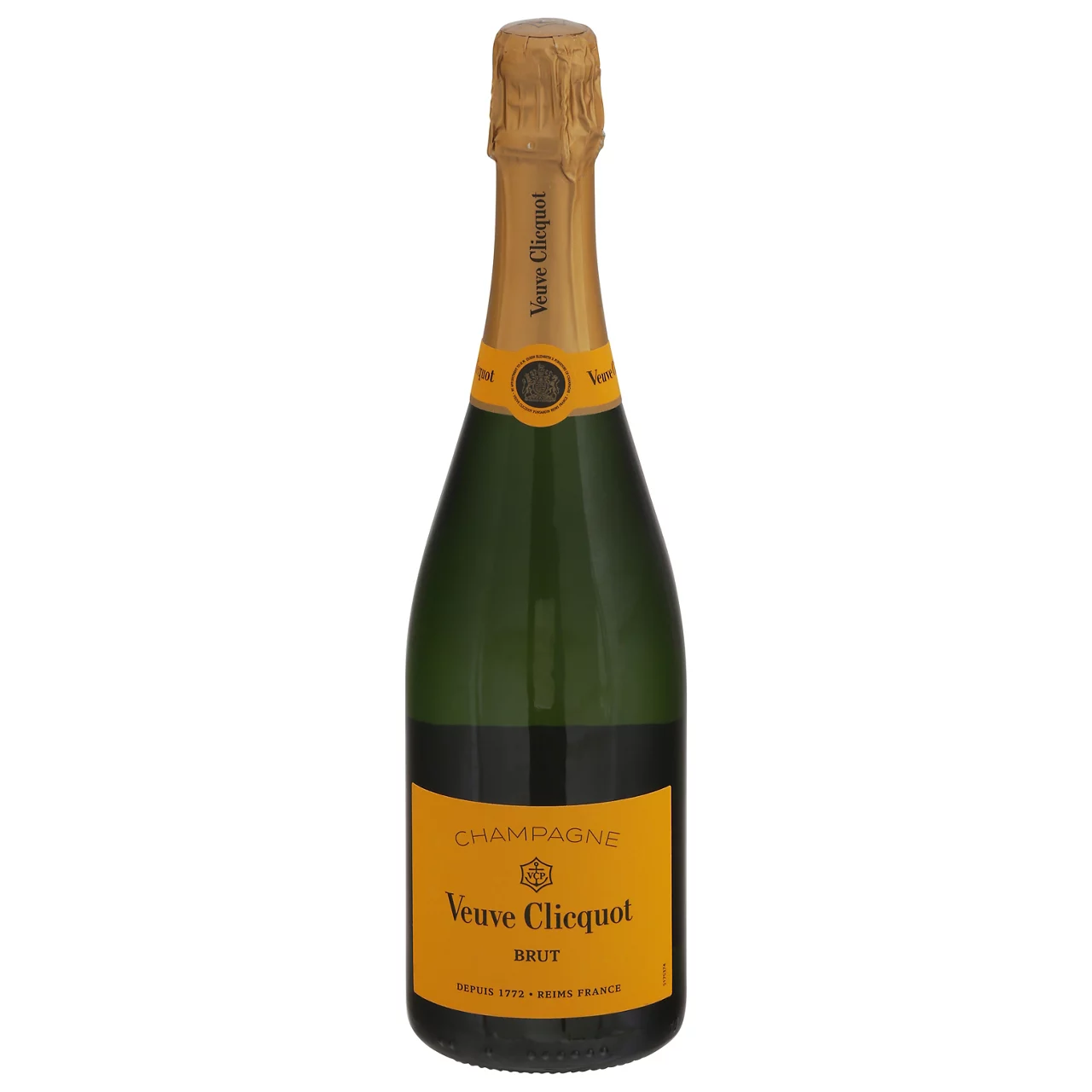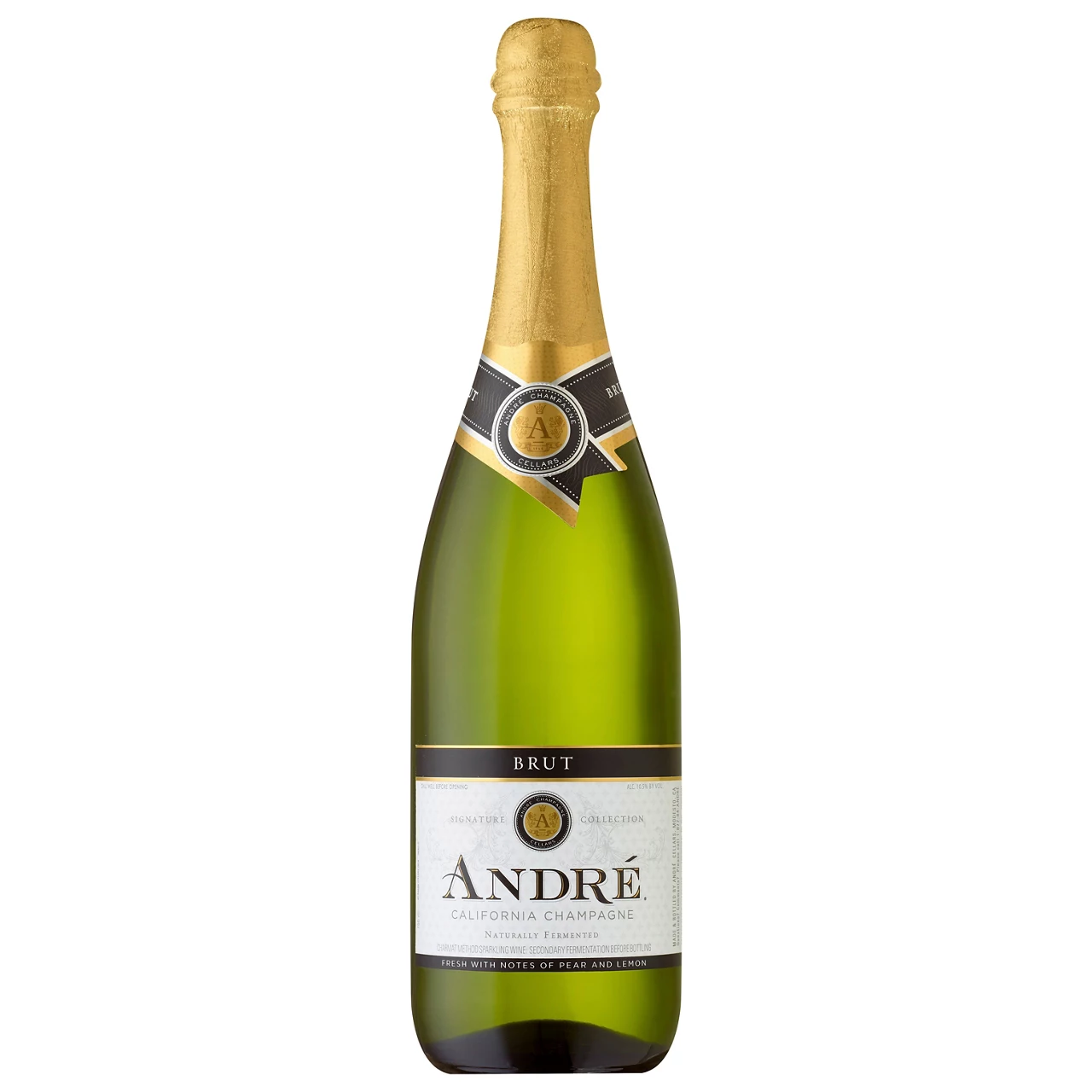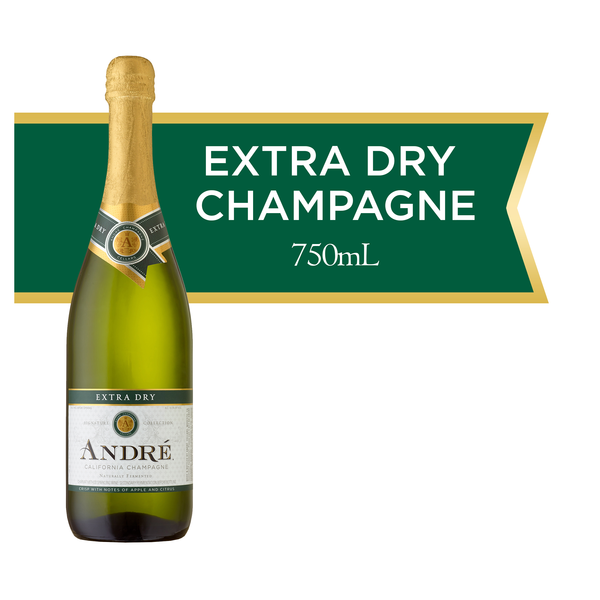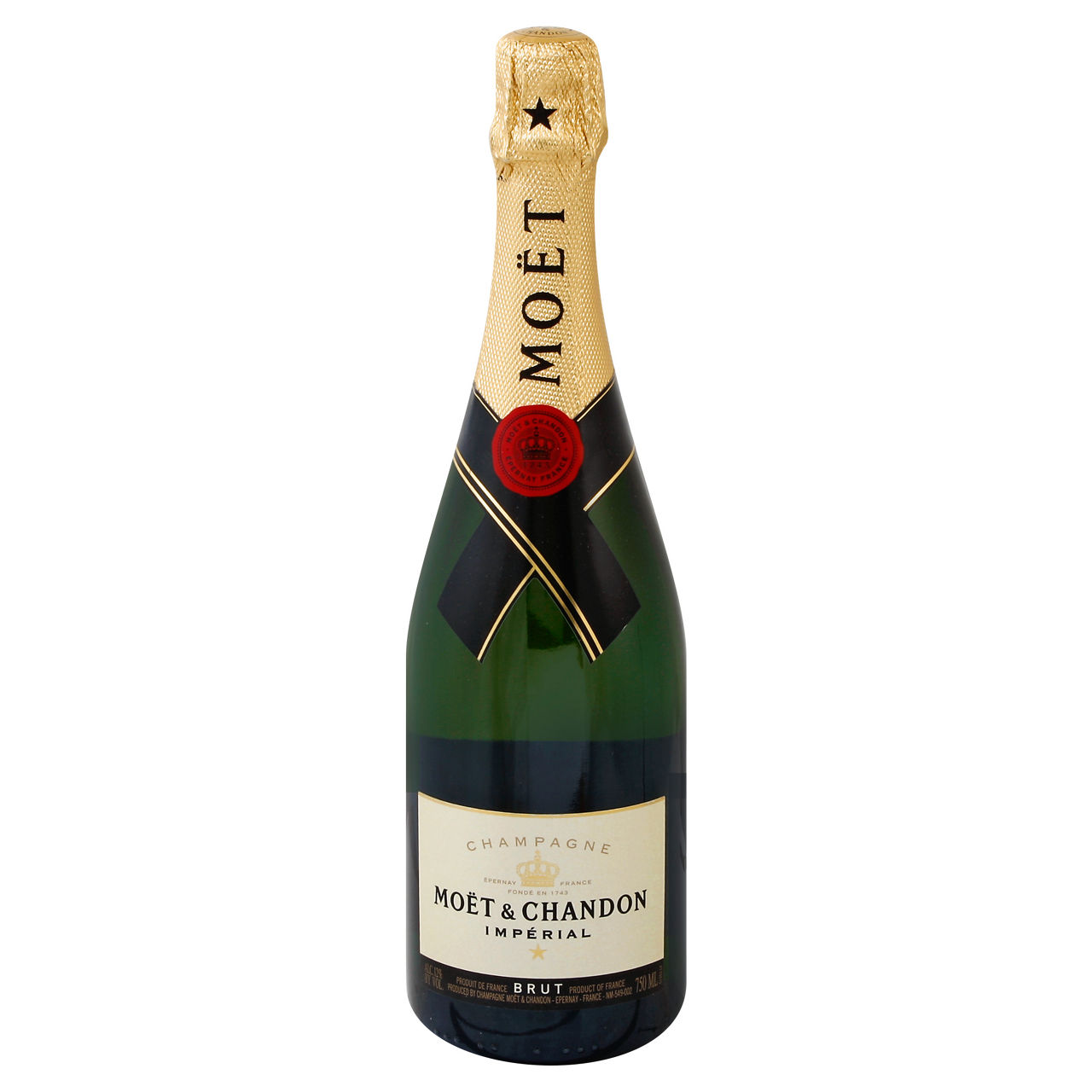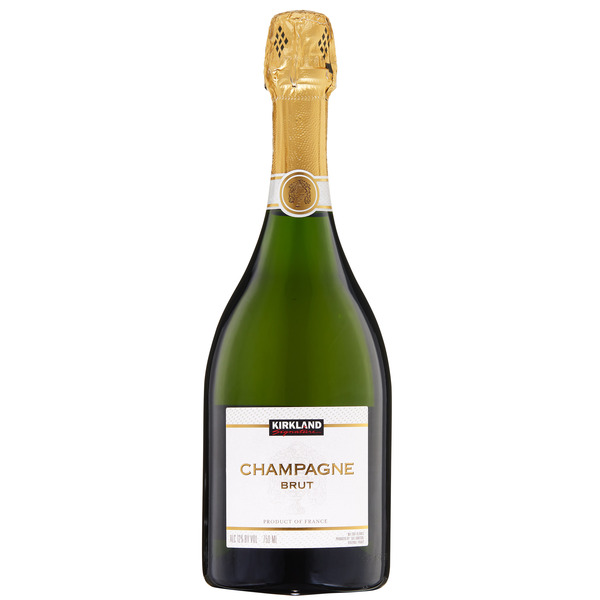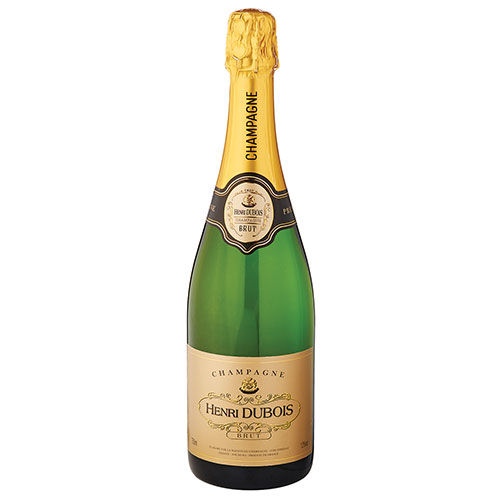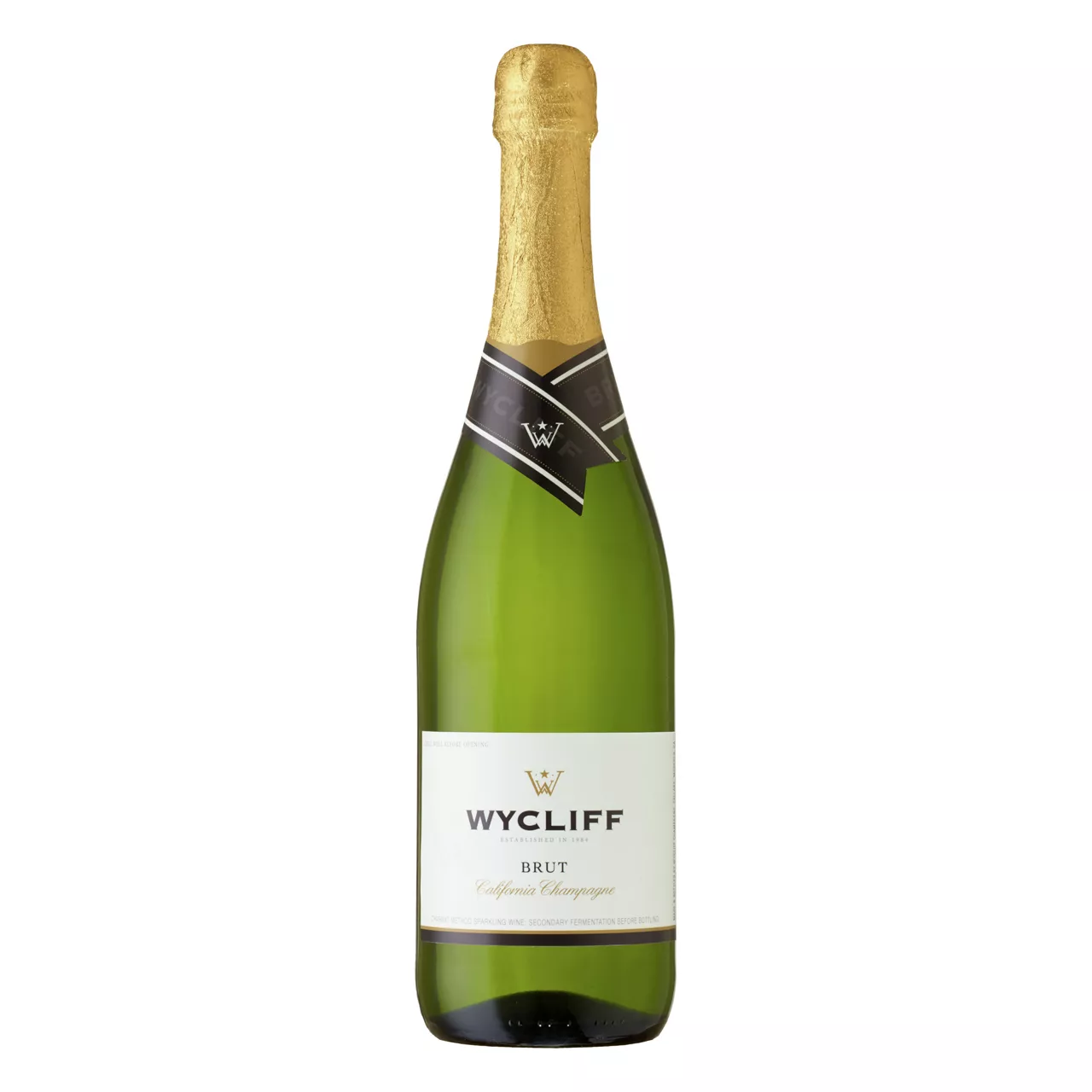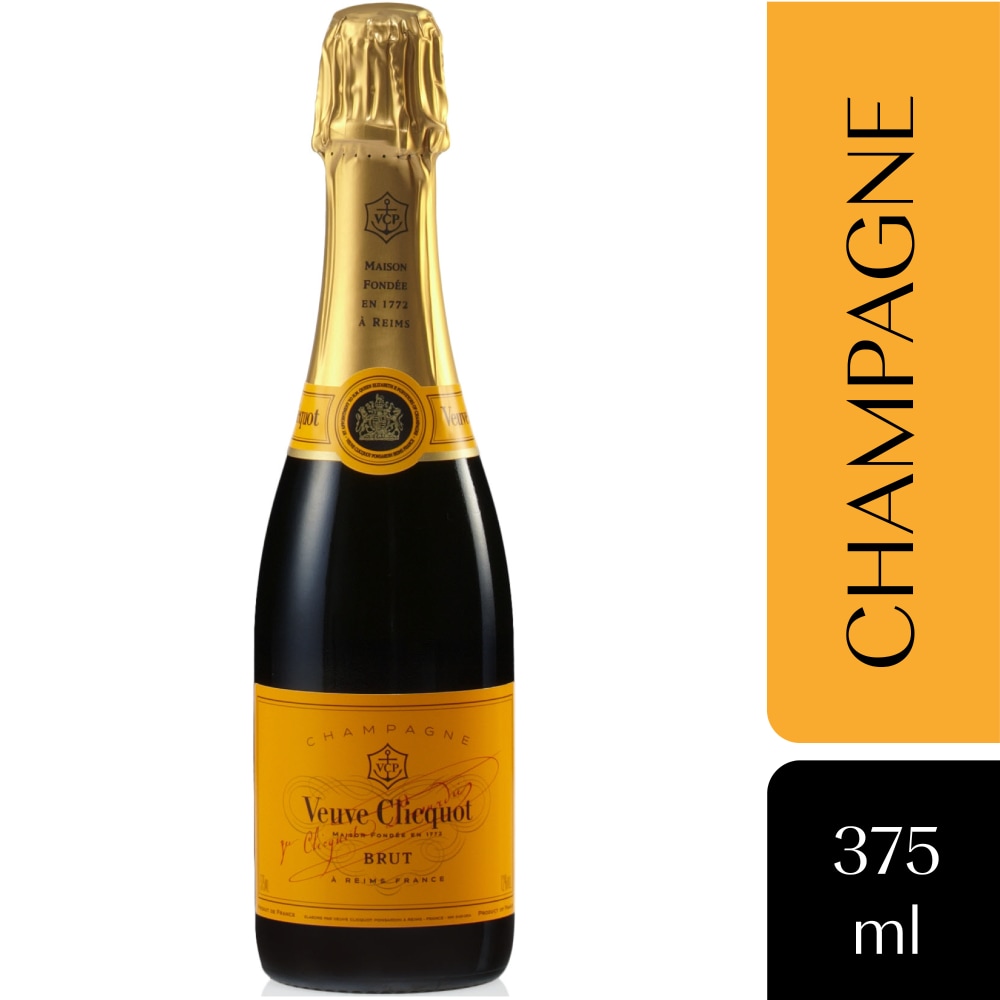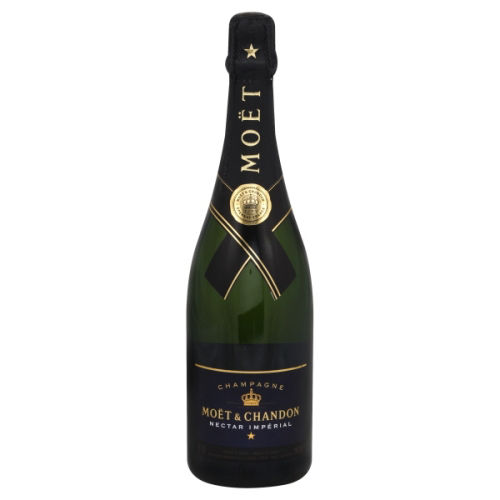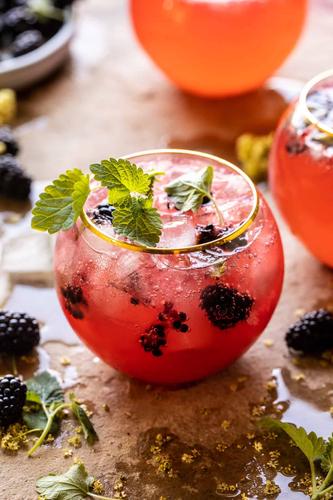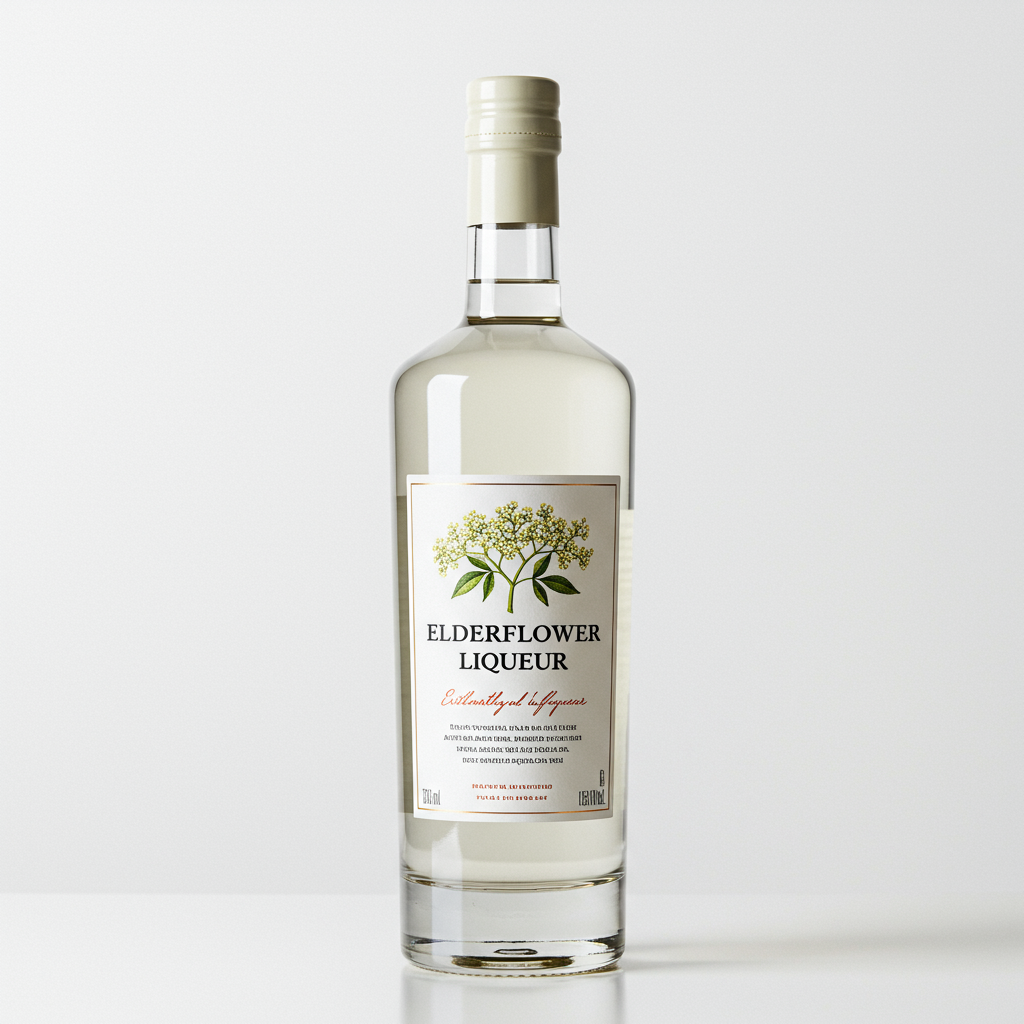BEVERAGES
COCKTAILS
Champagne
Champagne, a sparkling wine exclusively produced in the Champagne region of France, is a prestigious and iconic beverage commonly associated with luxury and celebrations. The primary grape varieties used in the creation of this effervescent drink include Chardonnay, Pinot Noir, and Pinot Meunier. Champagnes vary in sweetness, from Brut Nature (no added sugar) to Doux (sweetest).
The traditional method of production, known as "Méthode Champenoise," involves a secondary fermentation in the same bottle, creating the distinctive bubbles and complex flavors. Champagne is versatile, pairing well with a variety of dishes and often used as a key ingredient in cocktails such as the Classic Champagne Cocktail or Bellini.
97%
CARBS
0%
FAT
3%
PROTEIN
743 Champagne Products
Veuve Clicquot Veuve Clicquot Yellow Label Brut Champagne
Andre Brut Champagne Sparkling Wine
Andre Extra Dry Champagne Sparkling Wine
Moet & Chandon Moet & Chandon Imperial Brut Champagne
Kirkland Signature Brut Champagne France
Henri Dubois Henri Dubois Gold Label Brut Champagne
Wycliff Brut Sparkling Wine
Nicolas Feuillatte Brut Champagne French Sparkling Wine
Veuve Clicquot Veuve Clicquot Yellow Label Brut Champagne
Moet & Chandon Nectar Imperial Demi Sec Champagne
Used In 3 Recipes
Champagne Is Frequently Used With
Champagne FAQ
Champagne, with its distinctive bubbles and sophisticated flavor profile, is not just for clinking glasses on special occasions - it can be a versatile addition to the kitchen as well. Most common questions when cooking with Champagne involve its use in recipes, how it interacts with other ingredients, and preservation once the bottle is opened.
Where many people go wrong is treating champagne purely as a decadent drink. In reality, it is a fantastic and unique ingredient that can enhance your cooking, adding a unique depth and complexity to your dishes. Its high acidity and carbonation can help tenderize meats, its natural sweetness can balance out other elements in a dish, and its alcohol can boost the flavor of other ingredients.
Interestingly, it's not necessary to always use the most expensive champagne in your cooking. Lower priced varieties can just as effectively impart the desired flavor, while also keeping your budget in check. Also, never use a flat champagne in cooking, always ensure it's bubbly.
Despite its prestige, Champagne can be surprisingly versatile and can lend itself to a variety of dishes, from appetizers to desserts. One little-known tip is that you can even use it to make Champagne vinegar, adding a unique and extraordinary twist to your vinaigrettes or marinades.
Can I cook with Champagne?
Does the alcohol in Champagne cook off?
What can I substitute for Champagne in a recipe?
Can I use flat Champagne in cooking?
I have some leftover Champagne, how can I use it in cooking?
Can I use cheap Champagne for cooking?
What cocktails can I make using Champagne?
Can Champagne be used to make vinegar?
Does the type of Champagne affect the taste of the dish?
Is it safe for children or pregnant women to eat dishes cooked with Champagne?
Expiration & Storage Tips
When does champagne expire?
Once opened, champagne quickly loses its sparkle and should ideally be consumed within 3 to 5 days. Thanks to the high acidity and carbonation, it could last up to a week, but the taste will noticeably change as it loses effervescence. Unopened, it depends heavily on the quality of the champagne. Non-vintage champagnes can last anywhere from 3 to 4 years and vintage champagnes can last upwards of 5 to 10 years. Always store the champagne in a cool, dark, and stable environment to extend its shelf life.
How do you tell if champagne is bad?
If your champagne is flat, that is the most common indicator it has gone bad as it has likely lost its carbonation. It should have a lively effervescence when poured into a glass. The color may also change to a deeper hue and the taste can become sour or vinegary. Last but not least, if a foul or musty odor wafts out of the bottle when you first open it, it's a clear sign the champagne has spoiled.
Tips for storing champagne to extend shelf life
• Always store champagne bottles horizontally. This keeps the cork damp, which prevents it from drying out and becoming brittle, leading to air and other contaminants entering the bottle.
• Aim to store your champagne in a cool, dark space. Excess heat and light can damage the champagne and accelerate aging, while cool conditions slow down the aging process and helps maintain its unique flavors.
• Avoid storing champagne in the refrigerator for long periods. While it's crucial to refrigerate before serving for a refreshing taste, long-term storage in a dry fridge can dry out the cork.
• Consider a dedicated wine cooler or cellar for storage if you're a serious champagne collector, as these provide ideal conditions for long-term storage.
• If you've opened a bottle of champagne and didn't finish it, immediately recork it and refrigerate. Consider using a champagne stopper which can seal the bottle tightly and maintain the fizz for longer.
EXPIRES WITHIN
27 - 27.4
YEARS
Substitutes

Sparkling Wine

Sauvignon Blanc White Wine

Chardonnay White Wine

Prosecco Sparkling Wine

Moscato Sparkling Wine

Burgundy White Wine

Semillon White Wine

Soave White Wine

Vermentino White Wine

Vinho Verde White Wine
See All
Health Info
Macros
3g
CARBS
0g
FAT
0g
PROTEIN
Allowed on these diets
LOW FAT
HIGH CALCIUM
VEGETARIAN
KETO
MEDITERRANEAN
LOW CARB
VEGAN
LACTOSE FREE
GLUTEN FREE

